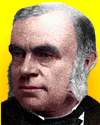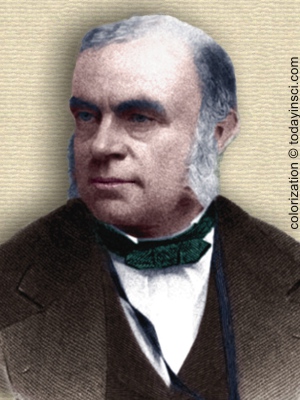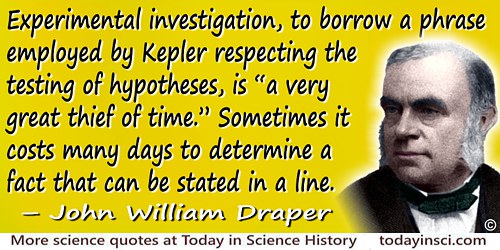 (source)
(source)
|
John William Draper
(5 May 1811 - 4 Jan 1882)
English-American chemist who pioneered in photochemistry.
|
Science Quotes by John William Draper (6 quotes)
As to Science, she has never sought to ally herself to civil power. She has never attempted to throw odium or inflict social ruin on any human being. She has never subjected anyone to mental torment, physical torture, least of all to death, for the purpose of upholding or promoting her ideas. She presents herself unstained by cruelties and crimes. But in the Vatican—we have only to recall the Inquisition—the hands that are now raised in appeals to the Most Merciful are crimsoned. They have been steeped in blood!
— John William Draper
History of the Conflict between Religion and Science (1875), xi.
Every movement in the skies or upon the earth proclaims to us that the universe is under government.
— John William Draper
In A History of the Intellectual Development of Europe (1864), 4.
Experimental investigation, to borrow a phrase employed by Kepler respecting the testing of hypotheses, is “a very great thief of time.” Sometimes it costs many days to determine a fact that can be stated in a line.
— John William Draper
In preface to Scientific Memoirs (1878), xi.
In early life I had felt a strong desire to devote myself to the experimental study of nature; and, happening to see a glass containing some camphor, portions of which had been caused to condense in very beautiful crystals on the illuminated side, I was induced to read everything I could obtain respecting the chemical and mechanical influences of light, adhesion, and capillary attraction.
— John William Draper
In preface to Scientific Memoirs (1878), xii.
Is it not true that for every person the course of life is along the line of least resistance, and that in this the movement of humanity is like the movement of material bodies?
— John William Draper
In preface to Scientific Memoirs (1878), xiv.
The history of Science is not a mere record of isolated discoveries; it is a narrative of the conflict of two contending powers, the expansive force of the human intellect on one side, and the compression arising from traditionary faith and human interests on the other.
— John William Draper
In History of the Conflict Between Religion and Science (1875), vi.
See also:
- 5 May - short biography, births, deaths and events on date of Draper's birth.
- John William Draper - Preface to Scientific Memoirs (1878).









 In science it often happens that scientists say, 'You know that's a really good argument; my position is mistaken,' and then they would actually change their minds and you never hear that old view from them again. They really do it. It doesn't happen as often as it should, because scientists are human and change is sometimes painful. But it happens every day. I cannot recall the last time something like that happened in politics or religion.
(1987) --
In science it often happens that scientists say, 'You know that's a really good argument; my position is mistaken,' and then they would actually change their minds and you never hear that old view from them again. They really do it. It doesn't happen as often as it should, because scientists are human and change is sometimes painful. But it happens every day. I cannot recall the last time something like that happened in politics or religion.
(1987) -- 


